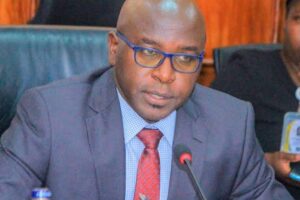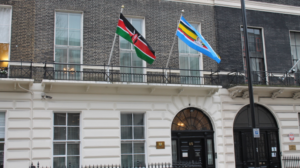Recent investigations have brought to light the involvement of various stakeholders, including NCBA Group, in a multi-million-shilling scandal revolving around the distribution of fake fertilizer in Kenya.
This fraudulent scheme saw unsuspecting farmers across the country supplied with substandard fertilizer, which severely impacted crop production and livelihoods.
NCBA has been indirectly implicated in the scandal, with allegations of financial facilitation and inadequate oversight, which allowed the fraudulent transactions to continue unchecked.
The fertilizer scandal primarily centers around 51 Capital, a private entity that entered into a deal with the National Cereals and Produce Board (NCPB) to supply what was purported to be genuine fertilizer.
However, investigations later revealed that the company was actually distributing a soil conditioner masquerading as fertilizer.
The product, which was purchased from African Diatomite Industries, was repackaged into 25 kg bags and sold at inflated prices to the NCPB, which then distributed it to farmers across the country.
The deal was worth over KSh 209 million, and the economic implications for the affected farmers were dire.
Instead of the promised high-quality fertilizer, they received a substandard product that did not meet the specifications outlined by the Kenya Bureau of Standards (KEBS).
Farmers were, therefore, left with poor yields, resulting in major financial losses.
While NCBA was not directly involved in the sale or distribution of the fake fertilizer, the bank has been implicated in the financial transactions that enabled the fraud.
According to reports, NCBA allegedly provided financial services to the parties involved in the scam, including the facilitation of payments between NCPB and 51 Capital.
The bank’s role in the scandal points to a potential failure in carrying out sufficient due diligence and reporting suspicious activities, as required by Kenyan banking regulations.
In recent years, the Central Bank of Kenya (CBK) has emphasized the need for banks to report large and unusual transactions to prevent financial fraud and money laundering.
However, in this case, it appears that NCBA and other financial institutions involved may have fallen short of these regulatory standards, allowing the fraudulent fertilizer transactions to proceed without raising any red flags.
At the heart of this scandal lies a well-coordinated cartel that colluded to defraud both the government and Kenyan farmers.
51 Capital, with the help of various intermediaries and public officials, managed to secure lucrative contracts with the NCPB, despite the fact that the fertilizer they supplied did not meet the required standards.
One of the key players in the scheme was Joseph M. Kimote, the suspended Managing Director of NCPB, who signed off on the contract that allowed 51 Capital to supply the substandard product.
Other officials within the NCPB were also implicated, with some facing charges of conspiracy to defraud, abuse of office, and forgery of crucial tender documents.
The cartel’s operations were highly profitable.
For instance, the soil conditioner that 51 Capital purchased from African Diatomite Industries at KSh 200 per kilogram was resold to the NCPB at KSh 1,700 per kilogram, pocketing a massive profit margin of KSh 1,500 per kilogram.
With 51 Capital selling nearly 140,000 bags of this product, the financial gains for the cartel were substantial.
This scandal has raised serious concerns about the effectiveness of regulatory oversight within Kenya’s financial and agricultural sectors.
NCBA, as one of the largest banking institutions in the country, is now facing public scrutiny over its role in facilitating fraudulent transactions.
While the bank has yet to be formally charged with any wrongdoing, the scandal has exposed vulnerabilities in its anti-fraud systems, highlighting the need for stronger regulatory compliance.
Moving forward, both the banking and agricultural sectors must adopt stricter due diligence processes to prevent such scams from occurring again.
NCBA and other implicated institutions will likely need to review their internal procedures, particularly around monitoring large-scale transactions and ensuring compliance with Kenya’s anti-money laundering regulations.
For farmers, the effects of this scandal are long-lasting, with many still recovering from poor harvests and financial losses.
The government must take decisive action to compensate the affected farmers and ensure that such fraudulent schemes do not undermine the country’s agricultural productivity in the future.
The NCBA Group’s indirect involvement in the fertilizer scandal underscores the broader challenges of financial oversight in Kenya.
The bank, alongside other financial institutions, must strengthen its internal controls to restore public trust and prevent future incidents of this nature from occurring.





















Add Comment